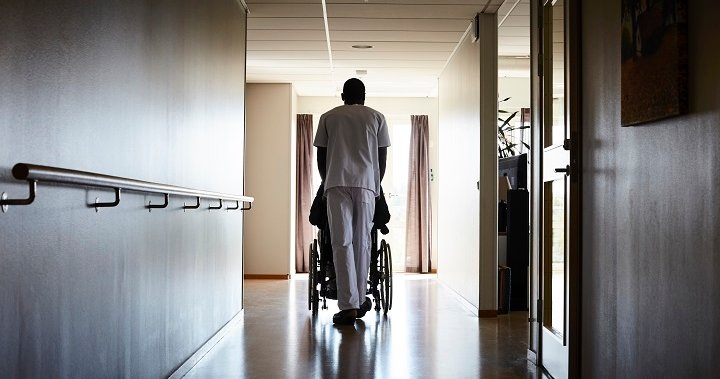Article – As calls to British Columbia’s Seniors Abuse and Information Line jumped 17% last year, advocates warn elder abuse remains dangerously underreported. The troubling increase comes just ahead of World Elder Abuse Awareness Day on June 15th.
“What we’re seeing is likely just the tip of the iceberg,” says Alison Leaney, provincial coordinator for the BC Association of Community Response Networks. “For every case reported, experts estimate at least 23 others go unreported due to shame, fear, or isolation.”
The provincial helpline received over 6,200 calls in 2023, up from 5,300 the previous year. Financial exploitation continues to be the most common form of elder abuse, according to the Seniors First BC organization that operates the helpline.
Bernadette Cheung knows firsthand how devastating elder abuse can be. Her grandmother suffered neglect in a Vancouver care facility, spurring Cheung to become an advocate.
“My grandmother couldn’t speak English well and had no voice in her care,” Cheung explains. “Many seniors, especially immigrants or those with cognitive issues, become invisible in the system.”
BC’s growing senior population has increased vulnerability. Census data shows adults over 65 now make up nearly 20% of the province’s population, with that number expected to reach 25% by 2031.
Recent provincial data reveals disturbing trends. Financial abuse accounts for approximately 54% of reported cases, followed by emotional abuse (21%), physical abuse (15%), and neglect (10%). Perpetrators are typically family members or caregivers – people seniors should be able to trust.
The COVID-19 pandemic exacerbated isolation for many seniors, creating perfect conditions for abuse to flourish undetected. Even as pandemic restrictions eased, many older adults remain disconnected from support networks.
“We’ve seen a significant shift in how elder abuse manifests since the pandemic,” notes Dan Levitt, CEO of KinVillage seniors’ community in Delta. “Digital financial scams targeting seniors have skyrocketed, while many older adults continue to experience profound social isolation.”
Provincial response has been mixed. The BC government allocated $1.2 million last year toward elder abuse prevention programs, but advocates argue this falls far short of what’s needed.
“When you break down that funding across our vast province, it’s barely enough to maintain current services, let alone expand them to meet growing demand,” says Grace Balbutin, Executive Director of Seniors First BC.
Municipalities across British Columbia are developing their own solutions. Richmond recently launched a seniors’ task force specifically targeting isolation and vulnerability, while Victoria implemented a neighbourhood check-in program where volunteers regularly visit older residents.
The province’s recently updated Adult Guardianship Act strengthens protections, making it easier for designated agencies to investigate suspected abuse. However, Isobel Mackenzie, BC’s Seniors Advocate, points out implementation gaps.
“Having strong legislation is only effective if frontline workers receive proper training to recognize abuse and understand their reporting obligations,” Mackenzie says. “Many healthcare providers and financial institutions still lack comprehensive training.”
Community groups are stepping up where government support falls short. The Council of Senior Citizens Organizations of BC has trained over 400 volunteer “senior ambassadors” to recognize warning signs of abuse and provide peer support.
Dolores Schultz, 73, is one such ambassador in Prince George. “Many seniors don’t even realize what they’re experiencing is abuse,” Schultz explains. “They think financial control by adult children is normal or that isolation is just part of aging. We’re working to change that perception.”
Cultural barriers create additional challenges. In many immigrant communities, reporting family members for abuse violates deep cultural norms. The SUCCESS Foundation has developed culturally-specific outreach programs in Mandarin, Cantonese, and Punjabi to address these unique barriers.
“In some cultures, family problems must stay private,” explains Queenie Choo, CEO of SUCCESS. “We’ve created safe spaces where seniors can discuss concerns without shame, with counselors who understand their cultural context.”
Looking ahead to World Elder Abuse Awareness Day, communities across BC are planning events to raise awareness. Purple lights will illuminate landmarks including the BC Legislature and Vancouver City Hall, while workshops and information sessions will run throughout June.
Dr. Gloria Gutman, professor emerita at Simon Fraser University’s Gerontology Research Centre, emphasizes that addressing elder abuse requires a multi-faceted approach.
“We need stronger prevention, better detection, and more robust intervention,” Gutman says. “This means education for healthcare providers, financial institutions, and the public, alongside accessible reporting mechanisms and support services.”
For seniors experiencing abuse, the Seniors Abuse and Information Line (1-866-437-1940) operates 8am-8pm daily, offering confidential support in multiple languages. The line also provides guidance for concerned friends, family members, or service providers.
As British Columbia’s population continues to age, elder abuse prevention has become increasingly urgent. Advocates hope the upcoming awareness day will spark meaningful conversation about protecting our most vulnerable seniors.
“Every older adult deserves dignity, respect, and safety,” says Leaney. “We must bring this issue out of the shadows and ensure seniors know they aren’t alone and that help is available.”






